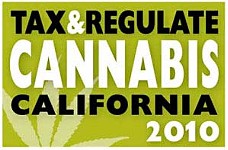Point Austin: Big Wounds, Small Comforts
Instant lessons of a recession election
By Michael King, Fri., Nov. 5, 2010

A recent Dallas Morning News article pegged the anticipated deficit between $24 billion and $25 billion, or "about 25 percent of current [discretionary] spending." That's not a hole to be readily plugged – even by exhausting the $9 billion rainy day fund – and it's also little reason for Perry to have stumped the state bragging about the Texas economy. If you remember rightly (and of course you do), the last state budget was rescued by a late infusion of federal stimulus funds (while Perry made a great show of rejecting a small portion directed at unemployment). Those contemptible dollars will not be forthcoming this time around, especially after Tuesday. It's all well and good to reach for the ritual "tightening of our belts," but looking at the general revenue gross spending categories – public education (39%), higher education (17%), health and human services (27%), public safety and criminal justice (11%) – or roughly 94% of all legislative appropriations, you've pretty well exhausted the possibilities for next year's cuts.
So take your pick, always remembering the reverberations, e.g.: When you cut public schools, you inevitably manufacture more prison inmates; when you slash health and human services, you push those structural expenses down onto the cities; and so on. Or using Perry's biennial broad-axe, when you cut state agencies "across the board" 5% to 10%, you throw hundreds or thousands of citizens out of work and onto the mercies of already minimal social programs you are also cutting, during a nationwide recession. Many of those folks will be your neighbors.
The Unendurable and the Unspeakable
That's the prospective picture in Austin – not a pretty one. Nationally, the scene isn't much better, although it's worth noting that Republican hopes of a complete congressional takeover were stymied, largely because of a handful of tea party candidates for Senate who scored so high on the loony charts they couldn't even beat Harry Reid. It's also true that at least half of the U.S. House Democrats sent to the showers were "Blue Dogs" recruited by the party (i.e., Rahm Emanuel and his team of triangulators) to run in conservative districts; conventional wisdom that the Democrats had gone "too far to the left" – when "the left" was not even invited to the backroom tables – are similarly baloney, although that hardly means the pundits will stop proclaiming it as settled fact.
On the other hand, who believes the GOP leadership will follow the tea party line on bankers and bailouts – or that of the bailed-out bankers who funded their campaigns, and who have called the economic tune on such matters for the last decade, regardless of the party in power? It's also worth wondering why the Democratic leadership couldn't have done a better job of marketing the administration's real achievements ("messaging," I guess the term is now): staving off a major depression, establishing the first major health care reform in two generations, even, for God's sake, cutting taxes. Instead, many of the Dem candidates seemed to think that by running away from the White House, they would escape the inevitable backlash of an off-year, recession-era election. That strategy certainly worked well.
Recall also those issues entirely off the table and inadmissible in public debate: the utterly bloated military budget, whereby we spend more on "defense" than nearly the rest of the world combined, and the continuing assault on civil liberties in the name of the "war on terrorism." The former both spreads international bloodshed and makes a mockery of alleged bipartisan fiscal conservatism, and the latter betrays all the ritual bipartisan grandstanding on constitutionalism. If progressives can do nothing else in the current reactionary climate, they can stand against more war and in defense of human rights.
The American Hero
It does seem painfully fitting that this backlash election should occur during the first week of the criminal trial of Tom "Stumbling With the Stars" DeLay, who did so much to lay the political groundwork that made such reactionary waves possible. To hear his lawyer tell it, DeLay was barely aware of the Texas maneuvers that would enable him to redraw the state's congressional delegation (along with others) and ensure a GOP majority for at least the ensuing decade. I seem to recall that when he was actually commanding the process, he not only spent plenty of time aggressively haunting the Capitol to make certain it happened according to his precise specifications, but cheerfully declared, "I'm the majority leader, and I want more seats!"
Here we are a decade later, and not only did DeLay achieve his 2002 goals, but his political descendents are also poised to maintain that gerrymandered dominance, in Texas and elsewhere, for another decade. It's small comfort that the country and its citizenry are not in fact as reactionary as a hard-right suburban Texas district whose champion is standing trial for money-laundering and conspiracy. It's more distressing that our state and national politics have come to reflect not what is best about the American political experiment of popular democracy and community engagement, but instead what is worst: the continued and growing dominance of accumulated wealth and entrenched power.
Got something to say on the subject? Send a letter to the editor.










